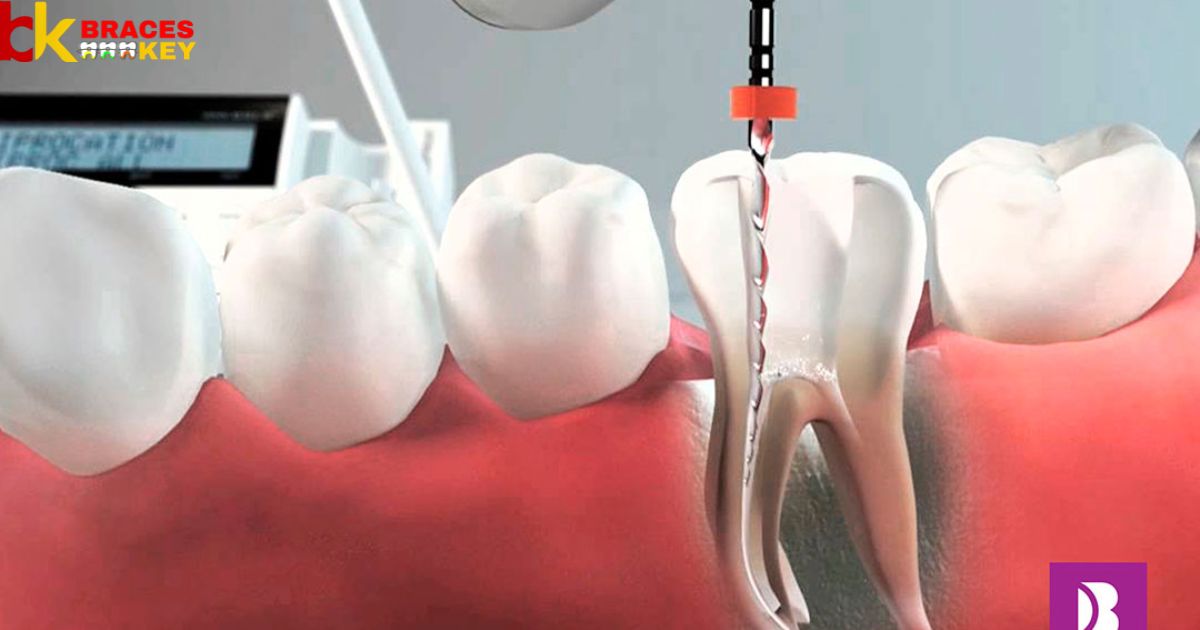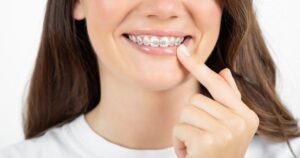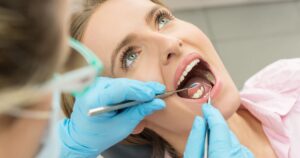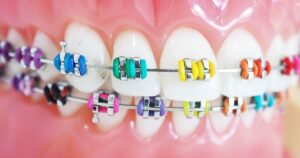Getting braces after a root canal is a dental scenario where a patient considers orthodontic treatment, such as traditional braces or Invisalign, following a root canal procedure. Root canals are often performed to treat issues with the tooth’s pulp, and orthodontic treatment may be necessary to address misalignment or bite problems.
For those who have undergone a root canal and are now contemplating orthodontic treatment, the combination of braces after a root canal can significantly enhance both oral health and aesthetics. Understanding the possibilities and considerations involved in this unique dental journey is crucial.
Getting braces after a root canal is indeed possible, but the timing and suitability depend on individual circumstances. Before pursuing orthodontic treatment, it’s essential to consult with both your endodontist, who performed the root canal, and an orthodontist. They will work together to determine the best approach for your specific needs and ensure the treatments.
Root Canal Tooth Brush With Braces
When it comes to oral care with braces, using a root canal toothbrush can be a game-changer. These specialized toothbrushes are designed with slim, elongated heads that easily navigate around the wires and brackets of your braces. This allows for efficient cleaning, ensuring that no nook or cranny is missed, while still being gentle on your sensitive gums.
The unique design of a root canal toothbrush minimizes the risk of damaging your braces and maximizes the effectiveness of your oral hygiene routine, even if you have a crown. By incorporating one into your daily brushing regimen, you can maintain the health of your teeth and braces, preventing potential complications during your orthodontic treatment and ensuring a confident, radiant smile in the end. If you’re wondering, Can I get braces if I have a crown? The answer is yes, with the right care, you can confidently embark on your orthodontic journey.
I Use Normal Toothbrush For Braces
Using a regular toothbrush for braces can be challenging, as it may not effectively clean between wires and brackets. Specialized orthodontic toothbrushes or interdental brushes are recommended to ensure thorough and gentle cleaning, preventing plaque buildup and maintaining oral hygiene during orthodontic treatment.
Orthodontic Toothbrush For Braces
An orthodontic toothbrush for braces is specially designed to clean around and between orthodontic appliances like braces and wires. Its unique bristle configuration and slim brush head allow for effective cleaning in hard-to-reach areas, helping maintain oral hygiene during orthodontic treatment.
Root Canal Tooth Hurts With Braces
Experiencing tooth pain while wearing braces can be attributed to various causes, and a root canal issue is one potential culprit. The pressure and shifting of teeth with braces can exacerbate existing dental problems, leading to discomfort. If you’re experiencing persistent pain, consult your orthodontist and dentist for a comprehensive evaluation and appropriate treatment.
Braces Cause Root Canals
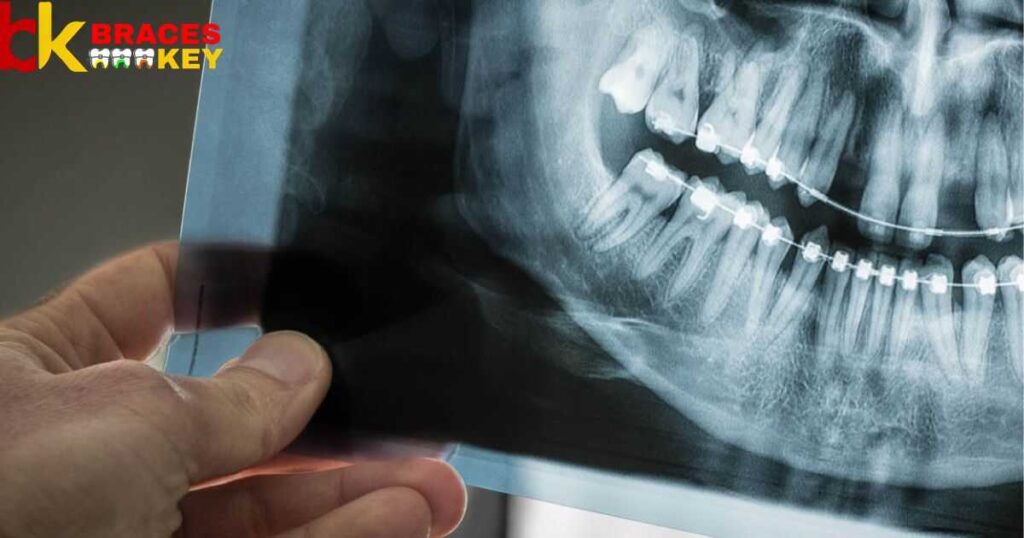
There’s a common misconception that braces can lead to root canals, but the reality is more nuanced. Braces themselves don’t directly cause root canals. They can increase the risk of dental issues like cavities and gum problems if not maintained properly. It’s essential to practice good oral hygiene while undergoing orthodontic treatment to minimize these risks.
Braces are primarily designed to correct teeth misalignment, not to cause root canals. In some cases, though, root canals may be necessary due to pre-existing dental conditions or as a result of complications arising during orthodontic treatment. It’s crucial to consult with your orthodontist and dentist to ensure your oral health is well-monitored throughout your braces journey, reducing the likelihood of root canal treatment becoming necessary.
You get Braces After A Crown
It’s not uncommon to find yourself in a situation where orthodontic treatment is necessary after having a dental crown placed. Crowns are often used to restore damaged or decayed teeth, but if alignment issues persist, braces can become a complementary solution. Orthodontists are skilled at working with patients who have dental crowns, ensuring that the braces are carefully tailored to accommodate the existing dental work.
The combination of braces and dental crowns can result in a winning smile that’s not only straight but also aesthetically pleasing. Orthodontic adjustments are made to work seamlessly with the crown, allowing for the most effective treatment. If you’ve had a crown and are now considering braces, rest assured that orthodontists have the expertise to help you achieve a beautifully aligned and fully restored set of teeth.
You Get Invisalign After A Root Canal
After undergoing a root canal procedure, the journey to a healthier smile might not end there. Many individuals wonder if they can still pursue orthodontic treatment like Invisalign. The good news is that Invisalign can often be a suitable choice post-root canal. This discreet and comfortable orthodontic option allows patients to address alignment issues while maintaining their dental health.
Invisalign, with its clear aligners, can offer a seamless path to a straighter smile even after a root canal. It’s essential to consult with your dentist and orthodontist to ensure that your oral health is stable before starting Invisalign treatment. With their guidance, you can work towards both a beautifully aligned smile and optimal dental wellness, giving you the confidence you deserve.
You Get Braces With Crowns On Front Teeth
The journey to a straighter smile doesn’t always begin with perfect teeth. If you have crowns on your front teeth and are considering braces, worry not. Orthodontists are skilled in adapting treatment plans to work seamlessly with existing dental crowns, ensuring that the alignment process remains as harmonious as ever.
Braces with crowns on front teeth can be a winning combination. While crowns provide strength and aesthetics, braces focus on alignment. Orthodontic specialists carefully strategize treatment, making necessary adjustments to accommodate crowns while guiding your teeth to their ideal positions. This dual approach not only enhances the aesthetics of your smile but also ensures a functional and lasting result.
Braces with Crownsor Root Canal
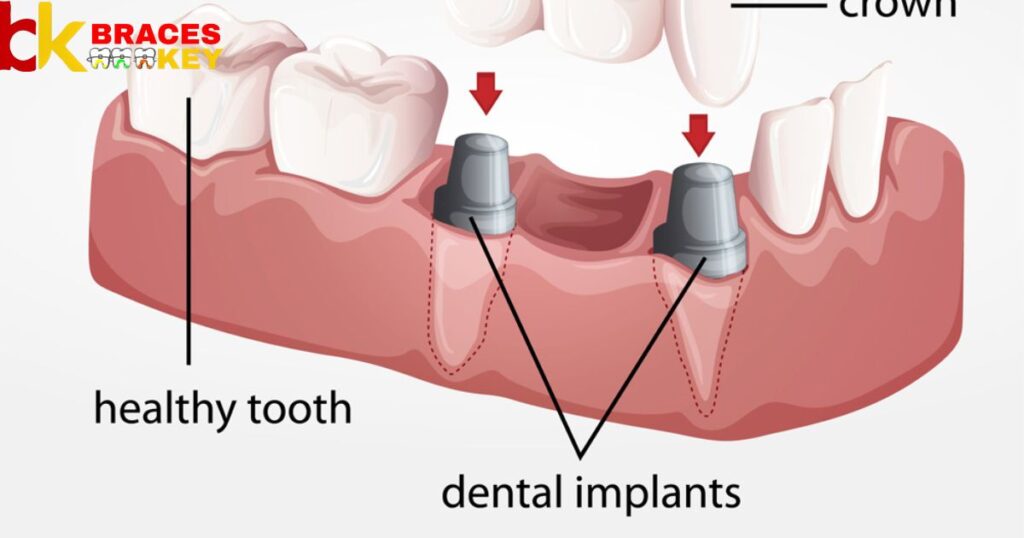
When faced with the decision of getting braces while having crowns or undergoing a root canal, it’s essential to consult with your orthodontist and dentist. Braces can be effectively used in conjunction with crowns or root canal-treated teeth to straighten your smile. Your orthodontist will work closely with your dentist to create a treatment plan that ensures the stability and alignment of your teeth throughout the orthodontic process.
The collaboration between orthodontists and dentists in cases of braces with crowns or root canals is a testament to modern dentistry’s ability to harmonize aesthetics and oral health. It’s crucial to have a comprehensive assessment to determine the best approach for your specific situation, ensuring that your orthodontic journey results in both a beautifully aligned smile and the longevity of your restored teeth.
Missing Teeth and Braces
When it comes to orthodontic treatment, addressing missing teeth is a crucial aspect of the journey to a straight and confident smile. Missing teeth can affect the alignment of your existing teeth and even lead to other dental issues. Orthodontists are adept at creating treatment plans that not only align your teeth but also consider solutions like dental implants or bridges to fill in the gaps left by missing teeth.
The relationship between missing teeth and braces is a unique challenge that orthodontists are well-equipped to handle. Braces can often be the solution to aligning remaining teeth while making space for future tooth replacement options. Depending on your specific case, your orthodontist will devise a personalized plan that caters to both the alignment of your teeth and the restoration of missing ones.
Braces With Missing Teeth Before And After
Braces, with missing teeth before and after, can transform a person’s smile. They work by gradually aligning teeth and filling gaps, resulting in a confident and improved appearance. This orthodontic treatment offers a life-changing impact on both aesthetics and oral health.
Braces Close A Missing Tooth Gap
Braces are an effective solution for closing the gap left by a missing tooth. They gradually shift adjacent teeth into the empty space, restoring a complete and aligned smile. This orthodontic treatment can improve both dental function and aesthetics, enhancing overall oral health.
FAQ’s
How long after root canal can you get braces?
You can typically get braces after a root canal once your tooth has fully healed, which may take a few weeks to a few months.
What is not allowed after root canal?
After a root canal, it’s not allowed to chew hard or crunchy foods on the treated tooth for a while, as it needs time to heal and strengthen.
What if I never got braces?
If you never got braces, your teeth and bite alignment might not have been corrected, potentially leading to oral health issues and cosmetic concerns.
Can I get braces if I have cavities?
Yes, you can get braces if you have cavities, but it’s generally recommended to address the cavities before starting orthodontic treatment.
Conclusion
In conclusion, Can you get braces after a root canal? Getting braces after a root canal is possible and can be beneficial for improving dental alignment and function. It’s essential to consult with your dentist and orthodontist to determine the best course of action based on your individual dental needs and overall oral health. Addressing any remaining dental issues and ensuring proper oral care is crucial for successful orthodontic treatment after a root canal.
